Comedian Rob Delaney on bringing his memoir of loss, A Heart That Works, to the Edinburgh International Book Festival
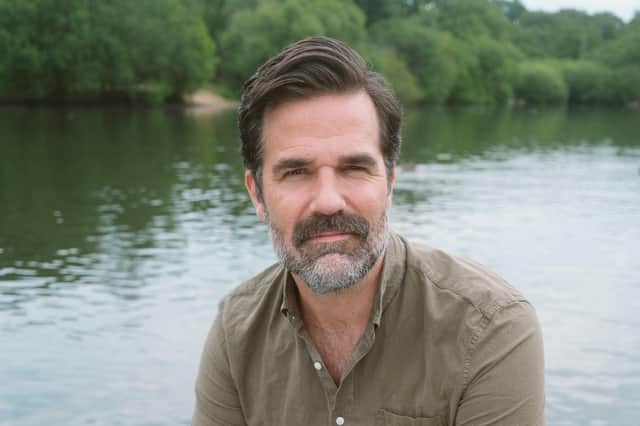

‘A heart that hurts, is a heart that works’
Lyric, Universal Heartbeat by Juliana Hatfield.
Rob Delaney, comedian and writer and star of Catastrophe is also husband to Leah and father of four boys, one of whom, Henry, died after being diagnosed with a brain tumour when he was two. Delaney writes about their son’s illness and death, and the grief surrounding it, in his memoir, A Heart That Works which he will talk about at the Edinburgh International Book Festival this week.
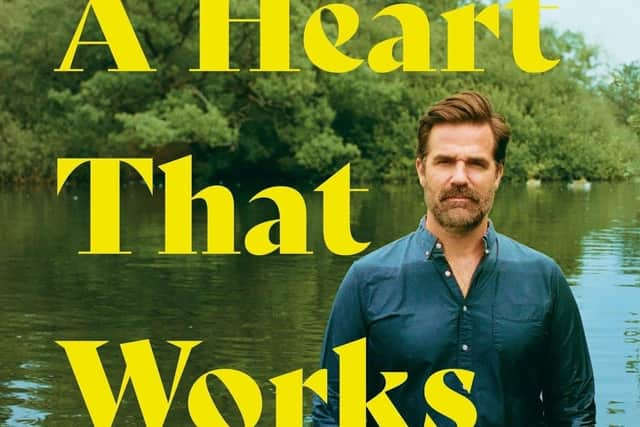

A Heart That Works is an eloquent exploration of grief around a journey that no-one would ever wish to take but the Delaneys did, and in writing it he records what happens to an ordinary family who has to cope with something extraordinary, and why his family is the way they are.
Advertisement
Hide AdAdvertisement
Hide Ad“Why do I feel compelled to talk about it?,” he writes in A Heart That Works, “to write about it, to disseminate information designed to make people feel something like what I feel? What my wife feels? What my other sons feel?”
He supplies us with the answer a few lines later:
“... I genuinely believe, whether it’s true or not, that if people felt a fraction of what my family felt and still feels, they would know what this life and this world are really about.”
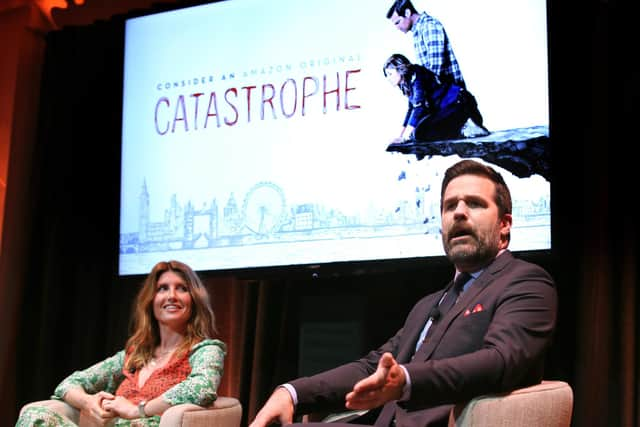

Speaking from Massachusetts, where he is visiting family with Leah and sons Eugene, 12, Oscar 10 and Teddy 5, splashing about in the water and watching the Boston Red Sox, Delaney explains the title of the book.
“It kind of sums up my life philosophy, a heart that hurts is a heart that works. It’s a lyric from a song I’ve enjoyed since I was a kid, Universal Heartbeat by Juliana Hatfield. A lot of people are chasing happiness and I get it, I want to be happy, but if your heart is hurting then your heart is working, and that’s part of the terms and conditions when we agree to leave the ether and take human form, that’s going to be what happens. Our heart will hurt and that’s not bad, or good, it’s just what happens, and so I thought that kind of fit the book and what it was about.”
His Edinburgh International Book Festival event is billed as being about writing with purpose, so why did Delaney write this memoir?
“The quotidian reason is I got a letter from Harriet Poland at Hodder, who said I’ve heard you talk about Henry on the radio and read interviews and think you could write a great book about him. She told me she had nursed her father through the end of his life and death from a brain tumour when she was a child and a lot of stuff I’d said about Henry she had really enjoyed hearing and found helpful. So I banged out a few pages - it was like somebody had given me permission - wrote some very angry stuff, and said is this the type of book you want - it was just rage - and she wrote back and said yes, so I said great, let’s go. But the joke was on me because the more I wrote, obviously there is anger in the book, but there’s a tremendous amount of love in it too, and that is the predominant feeling I was left with when I finished writing.”
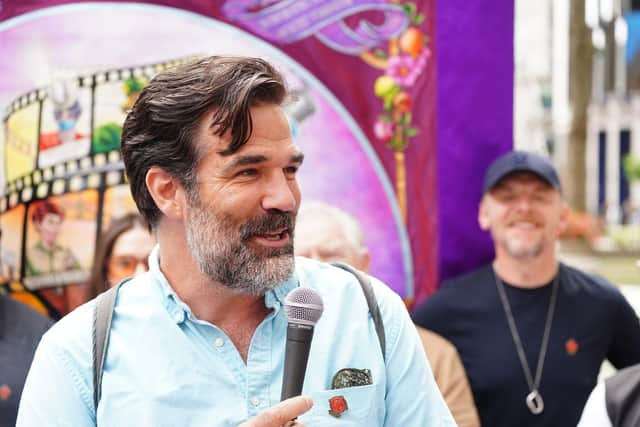

Aside from responding to Poland’s request, which provided the spark, Delaney had another reason for writing the book.
“My purpose was to try to present an unvarnished picture of what it is like to have a child get diagnosed with cancer and then get sicker and then get worse and then die and be dead.
Advertisement
Hide AdAdvertisement
Hide Ad“I didn’t want to offer any lessons or any hope, at least in a prescriptive manner - it was OK with me if a reader felt hope because they saw love between my family members and saw how we behaved in the book and realised OK they’ve got some skills that’ll maybe see them through - but I thought it was important to really make the book hurt for a reader. I really thought that was a nice thing to do. I like people. I love people, and I thought I could write a more useful book if I showed it as clearly as I could than if I said ‘oh, but don’t worry dear reader, we’ll be OK’. I thought that would essentially be a sin and leave readers less prepared for something terrible to happen.
“My book cannot prepare you for a terrible loss, but it could maybe give you a little template to look at and say OK, I’m going through this, he went through it, he is, to the best of my knowledge, alive and playing with a full deck mentally and emotionally, I see evidence he’s happy sometimes, sad sometimes, angry sometimes, lying on the floor crying sometimes, cheering at a concert sometimes, holding hands with his surviving children sometimes. I really wanted it to be a book that showed rather than told. This is why we are the way we are, you know.”
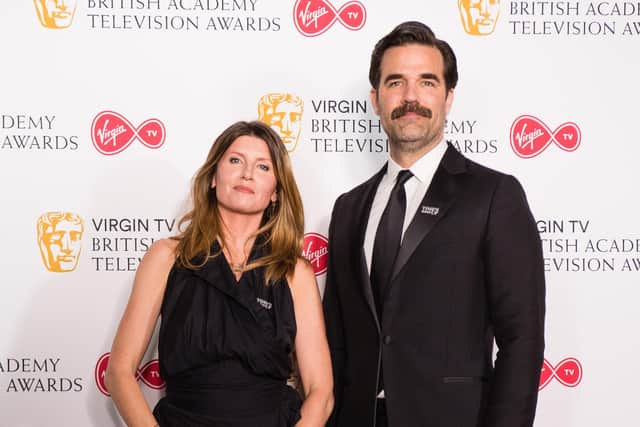

And true to his word, there isn’t much prescriptive advice, apart from don’t ask what you can do to help, just do something - show up, cook, feed the family’s bearded dragon, spend time with the one who is sick - and “do not forget to love, touch and look into the eyes of every other family member regularly,” but there is a lot of love on show in the behaviour of family members.
Despite Delaney being a comedian and co-star and co-writer of the hit comedy series Catastrophe with Sharon Horgan, you might not expect to laugh while reading his book, but such is Delaney’s skill in catching the nuances of relationships and absurdities of life along with the horror, you will.
Describing times spent in hospital in Henry’s room, including the Halloween where the entire family dressed up, Delaney writes: “And if you can’t have fun dressed as a family of skeletons in a paediatric cancer ward, I don’t know what to tell you.” Similarly when his father-in-law comforts Delaney and says “I wish it was me instead of Henry,” he responds. ‘We do too, Richard.”
“Yeah, well we laughed during that time, and we still do,” says Delaney. “And you know, we cry… I had a dream like three nights ago, where I was walking around thinking it will never be OK, and I was missing Henry and in terrible pain, and then later in the dream another of my sons got bit by a zombie and I was like oh my god, he’s going to turn into a zombie, but then I got bit by a zombie and I was like oh, thank god, we can just be zombies together and hunt for brains and I’ll be with him, and he’ll feel safe. So echoes of Henry, not just echoes, but gut punches, still happen, and that’s OK. I love him, he’s my son, I’m his father, it should hurt, but it’s OK, I don’t hate the pain.”
Given that very few of us get through life without experiencing grief, why does Delaney think we are scared to write and talk about it?
“I think it’s people confronting their powerlessness. There’s nothing they can do so they just have to sit with it and it is uncomfortable, and it does hurt, even to just witness grief like that. You feel bad for the person experiencing the grief and feel inadequate that you can’t fix it, whereas someone who has really grieved is like well yeah, of course there’s nothing you can say. You just have to be with it. You just have to be with me now.”
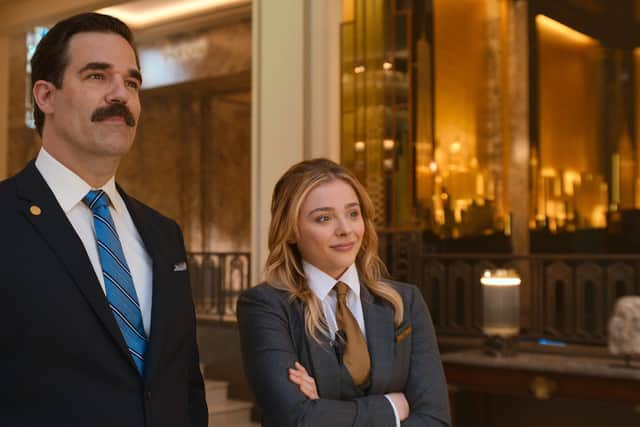

Advertisement
Hide AdAdvertisement
Hide AdPeople can spend years pushing grief away and rushing on with their lives, only for it to sneak up behind them. Delaney suggests it’s better just to feel it.
“Just from an efficiency standpoint, if you acknowledge it you can move through it, both conversationally and experientially. You know, ‘yeah, christ that’s so terrible I’m so sorry, what a nightmare’, and then the griever says ‘yeah, it sucks’ and then you sit there together quietly for… a maximum literally of four seconds, and then you can say, ‘so what do you want for lunch?’ If you just let it in it’s like releasing a valve, the person feels seen and heard for just a moment, and that’s all they need. They know you’re not going to fix them, they wouldn’t expect you to, you just acknowledge it.”
Unlike adults who are afraid of saying the wrong thing, Delaney has come to welcome the spontaneity and directness of children’s approach to death.
“I love it when a kid hears about Henry and they’re like ‘WHAT? He’s DEAD?’ and I say ‘Yeah, he’s dead.’ And they go ‘what? HOW? and I love that question. You’re never not curious. You hear somebody’s two year old died, you immediately hunger to learn how. You can ask the person, they’re always thinking about them, it’s not going to torpedo their day, they have already thought about their dead kid that day, or that hour, or that minute, so ask ‘em.”
If there’s one take away from A Heart That Works, it’s don’t be afraid of people who are grieving. You might say the wrong thing, but it’s better than saying nothing or avoiding them, besides the worst has already happened.
For example I’ve read in his book that Delaney’s son died on his birthday and he isn’t wild about being around adults celebrating them because Henry only had two, yet when it comes to checking his age I say ‘so, you’re 45? then when he replies “46”, I breenge in with, “Oh you’ve had a birthday. Happy birthday. Oh sorry! I know you don’t like that.”
He laughs. “It wouldn’t even have occurred to me. No, once I got that out of my system onto paper I’m fine, I forgot about it.”
So steering the conversation to holiday times in Massachusetts I ask about Delaney’s family, because we’ve got to know them in the book, and enquire about his dad, who figures a lot, and who was diagnosed with cancer as a result of being exposed to Agent Orange after he was drafted into the US army during the Vietnam War.
Advertisement
Hide AdAdvertisement
Hide Ad“Aw, my sweet dad,” he says. “I’m sad to report he died three days after the book came out. I flew back and was with him and he had a good death. He was a wonderful guy and such a great grandfather to Henry and his brothers and dad to me in the last act of his life. So I miss him. I really can’t believe he’s gone, especially now I’m in Massachusetts. So I love him, I talk to him. It’s weird because having lost a child and then lost a dad at age 74, my dad’s death produces a lot of feelings in me, but it’s not tragic. There’s tragedy in that the US government says it’s more likely than not that his cancer came from Agent Orange which they exposed him and millions of Vietnamese people to and it’s tragic he didn’t have a route out of the draft so was sent there at 19. But hey, something gets all of us at the end so 74, that’s not tragic. It’s sad, I miss him, I love him, I wish he were here, but you know…”
With time running out, we talk about what’s next for Delaney careerwise, but because of the actors’ strike he can’t talk about his film or TV work.
“Right now I’m refilling the bucket as it were, because like Catastrophe this book really took it out of me. So I’m living more so I can make something else worthwhile. I have scripts I’ve written so hopefully I can get something produced pretty soon, otherwise I’m acting in other people’s movies and TV shows. It’s fun to be an employee and a cog in the wheel. And I have a show that will be, oh wait I can’t say because of the strike.
“But I can tell you I did participate in a rally with Brian Cox, and loved that. It was tremendous fun to stand arm in arm with him. I’d never met him so it was fun to chat, what a really wonderful guy, and it’s just great to see solidarity like that.”
It’s not a surprise to see Delaney at a rally in support of the strike and he is vehement in the book in defence of the NHS, having spent so much time receiving healthcare for his son, and because he grew up in the US and knows what happens to people’s health when you don’t have one, and also because his family experienced what happens when there are cuts in social care.
“I would also say people shouldn’t listen to me on most subjects but British people SHOULD listen to me because I am an American who moved to the UK at the age of 37, so I have almost four decades’ experience of American health care then I come over and am gobsmacked by the majesty of the NHS and then I use the NHS more than most people do in a lifetime for Henry so I do know what I am talking about on ONE subject and that’s American health care versus British health care and the methods in which it’s financed.
“The book is not a polemic or prescription for the NHS and how to defend it because there are other places where it would be better to do that but it does show the effects on one family, and they’re profound.
Since A Heart That Works was published in hardback in 2022 Delaney has experienced an outpouring of reaction, much of it in the form of messages from people who have lost a child or a sibling when they were a child, or a spouse to suicide.
Advertisement
Hide AdAdvertisement
Hide Ad“These glorious, beautiful, staggering messages, sometimes incredibly long and thoughtful and maybe the first time a person has been really able to write it out, and the number of them I get, I cannot respond to them all. But those messages are legion and just wonderful. I love to hear from a grown up who says when I was five my three-year-old sister died and I so appreciate you talking about your experience and it gave me some insight into why my parents are the way that they are. Messages like that are just staggering and I love them.”
Delaney writes beautifully about his children, especially Henry, and the pleasure his family take in him despite the horrendous circumstances: how his hair grows back after surgery, his delight when he gets to feel protective of big brother Oscar who has fallen asleep beside him in his hospital bed, his joy during a therapy puppy visit at Great Ormond Street where Delaney is forced to confront his prejudice about small dogs or ’yappy little shitboxes’, how on his last night his family carried him outside so he could be under the stars in the night air one more time.
“Having your child die is so brutally humbling I struggle to describe it,” writes Delaney.
Anyone who reads his book will be glad he did.
Rob Delaney: An Open Heart, Sun 27 Aug 8.30- 9.30pm, Baillie Gifford Sculpture Court, www.edbookfest.co.uk
Rob Delaney, A Heart That Works, is published by Coronet in paperback on 31 August, 2023, £10.99, and also available in hardback, £16.99. Coronetpublishers.com